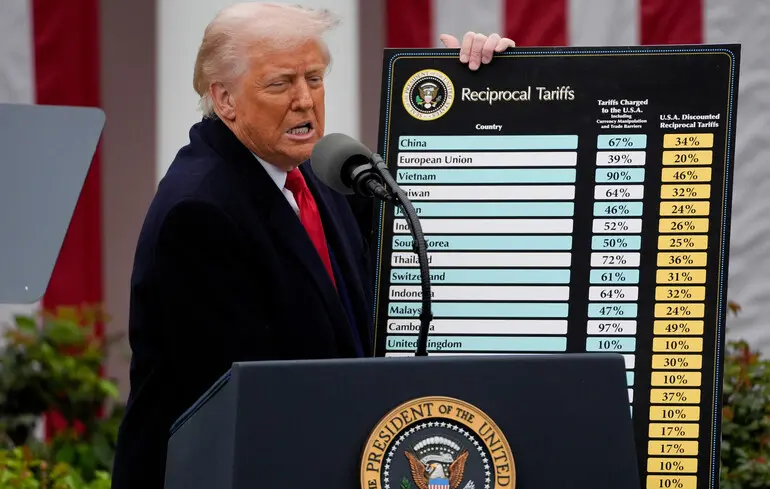U.S. Appeals Court Declares Most of Trump’s Tariffs Unlawful but Keeps Them in Effect Pending Final Ruling

On August 30, 2024, the United States Court of Appeals delivered a landmark decision regarding former President Donald Trump’s trade policies.
The court ruled that the majority of tariffs implemented during his administration are legally invalid, citing a lack of proper legal basis.
By a vote of 7 to 4, the judges decided that these tariffs violate constitutional provisions and cannot remain in force.
However, the ruling includes a temporary stay until October 14, giving the Trump administration time to file an appeal with the Supreme Court of the United States.
This decision has significant implications for U.S.
trade policy, as many experts and politicians have expressed concern over the negative impact of these tariffs on the U.S.
economy, including increased inflation, disrupted supply chains, and higher prices for imported goods.Throughout his second term, Trump heavily relied on tariffs as a tool of foreign policy, using them to exert pressure on trading partners and renegotiate existing trade agreements.
Notably, the confrontations with China, Canada, and Mexico exemplified this strategy.
Trump justified these measures by citing concerns over illegal narcotics, especially fentanyl, and trade deficits, though these claims have faced skepticism and denial from affected countries.
The court emphasized that the president lacks the constitutional authority to impose tariffs under the International Emergency Economic Powers Act (IEEPA) without explicit congressional approval, which limits the scope of executive powers in trade matters.The court’s decision specifically addresses two sets of tariffs: the mutual tariffs introduced in April 2024 and the separate package of tariffs from February targeting China, Canada, and Mexico.
The ruling does not affect tariffs on steel and aluminum imposed under other legal grounds.
Market analysts warn that the ruling could increase uncertainty in financial markets and influence future U.S.
trade negotiations.Former Commerce Department official William Reinsh noted that the Trump administration likely anticipated such a verdict and may have a ‘Plan B’ to sustain tariffs through alternative legal channels.
The legal battle reflects broader tensions between economic policy and judicial oversight, with the Supreme Court expected to make the final determination that could shape the country’s trade and economic strategies.
The U.S.
Constitution grants Congress the power to levy tariffs and taxes, a principle challenged by these legal disputes, including lawsuits brought by various states like California.In addition, Trump announced intentions to impose tariffs on 150 countries at once, emphasizing his commitment to using tariffs as a strategic weapon to protect domestic industries and combat illegal imports, particularly of drugs like fentanyl.
His approach remains controversial, facing criticism for potentially harming the long-term economic stability of the nation and deepening political polarization.In summary, the appellate court’s decision marks a new phase in the legal contest over Trump’s tariff policies, with the final verdict likely resting with the Supreme Court, whose ruling could determine the future direction of U.S.
economic and trade policies.

